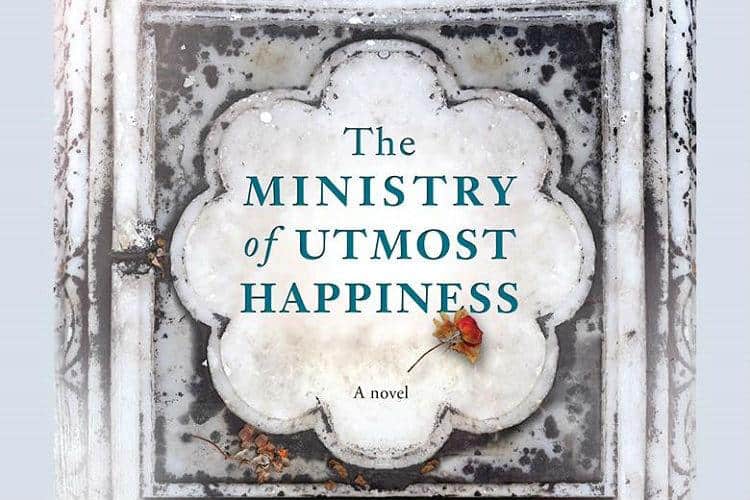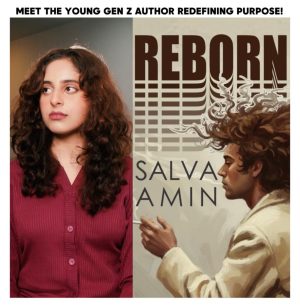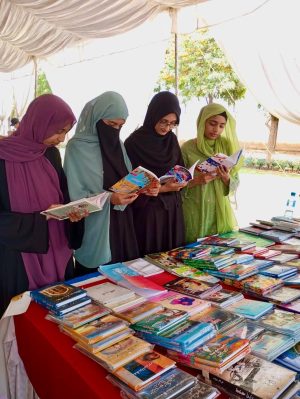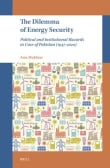Arundhati Roy’s second novel is not just one story, but many. You will read about a trans woman from Delhi, about a man from an untouchable background passing himself off as a Muslim, a government official retired from a post in Kabul, a resistance fighter in Kashmir, a woman in the Maoist rebellion in Bastar, a rebellious woman who kidnaps an abandoned baby, and more. Indeed, from time to time the birds and the beetles become as important as the people in this narrative, the poetic expression of the crude and ‘hard’ realities not only make the novel even more unputdownable but exhibits Roy’s extraordinary writing skills.
So, it would be an utter injustice to judge the book solely through my headline that categorically calls it a story of body that wages war on you. Because Roy’s mastery knows no bounds. While I’m particularly trying to expound the part of the story that deals with gender crisis and identity, Roy has also traced the last few decades of political strife to India’s identity today through a number of characters and subplots. Throughout the book, she subtly sounds an alarm, coaxing people to see the policies behind the “polite prime minister” she never names but is clearly inspired by India’s current Prime Minister Narendra Modi. And while she writes about the rise of Hindu nationalism and the use of “opulent displays of piety” as political currency, she also addresses the absurdity of protest becoming a brand, writing about a man on a hunger strike against corruption: “The old man’s rustic rhetoric and earthy aphorisms trended on Twitter and swamped Facebook.”
While tackling the official national narrative and countless forms of resistance to it, Roy exhibits her extraordinary skills by also managing to simultaneously relegate her analysis to the micro level by touching upon the treatment of transgender women, local religious traditions under assault, attitudes toward abortion and violence against women.
She brilliantly brings this all together through empathetic characters whose perspectives are often obscured by tokenizing portraits of the militant Muslim, peace-loving Hindu or sad single woman. It synchronises micro to the macro and shows its evolution and conclusion simultaneously. It’s a journey and interpretation of the ‘whole’ through the prism of deep ‘parts’, both reflecting the each other.
Aftab: A migration from one identity to another
Hijras are the persecuted people who, though biologically male, feel they are female, and dress and act as women and constitute a long-recognized subculture.
People who are defending their right to be women, not men, do not, as a rule, wear pin-striped suits. They wear golden sandals and green-satin shalwars. In Roy’s Khwabgah (House of Dreams), they also paint their nails and sing songs from Bollywood movies. They are fancy; they are fun. At the same time, they are the book’s ruling metaphor for sorrow.
“Do you know why God made hijras?” Anjum’s housemate Nimmo asks her one day. “It was an experiment. He decided to create something, a living creature that is incapable of happiness. So he made us.” Think about it, she says. What are the things regular people get upset about? “Price-rise, children’s school-admissions, husbands’ beatings, wives’ cheatings, Hindu-Muslim riots, Indo-Pak war—outside things that settle down eventually. But for us the price-rise and school-admissions and beating-husbands and cheating-wives are all inside us. The riot is inside us. Indo-Pak is inside us. It will never settle down. It can’t.”
Aftab – another young boy who is suffering from the gender crisis and has recently discovered Hijras of Khwabgah– didn’t get this at all and wanted to contradict Nimmo desperately. He was deeply affected by Nimmo’s words because he was happier than ever before after discovering Khwabgah.
“It was only when he turned fourteen, by which time Nimmo had run away from the Khwabgah with a State Transport bus driver (who soon abandoned her and returned to his family), that Aftab fully understood what she meant. His body had suddenly begun to wage war on him. He grew tall and muscular. And hairy. In a panic he tried to remove the hair on his face and body with Burnol – burn ointment that made dark patches on his skin. He then tried Anne French crème hair remover that he purloined from his sisters (he was soon found out because it smelled like an open sewer). He plucked his bushy eyebrows into thin, asymmetrical crescents with a pair of home-made tweezers that looked more like tongs. He developed an Adam’s apple that bobbed up and down. He longed to tear it out of his throat. Next came the unkindest betrayal of all – the thing that he could do nothing about. His voice broke. A deep, powerful man’s voice appeared in place of his sweet, high voice. He was repelled by it and scared himself each time he spoke. He grew quiet, and would speak only as a last resort, after he had run out of other options. He stopped singing. When he listened to music, anyone who paid attention would hear a high, barely audible, insect-like hum that seemed to emerge through a pinhole at the top of his head. No amount of persuasion, not even from Ustad Hameed himself, could coax a song out of Aftab.”
His body started going against his perception of his ‘self’ and existence. How on earth can the perception of self’s existence can go so wrong and misleading? Is it a mirage that I’m chasing? Am i caged in the wrong body? The gender and sex, both constitute person’s experience of self and identity and therefore status and role in society, how can it shatter like this? The body waged war on ‘him’ as Roy puts it aptly.
His ‘Hijra tendencies’ were unlikely to ever go away as Dr Nabi already warned the family. Fitrat was the word he used for ‘tendencies’.
‘Tendencies?’ his father said. ‘Tendencies are no problem. Everybody has some tendency or the other . . . tendencies can always be managed.’
“Even though the visit to Dr Nabi did not provide an immediate solution to what Mulaqat Ali saw as Aftab’s affliction, it benefited Mulaqat Ali a great deal. It gave him coordinates to position himself, to steady his ship that was pitching perilously on an ocean of couplet-less incomprehension. He was now able to convert his anguish into a practical problem and to turn his attention and his energies to something he understood well: How to raise enough money for the surgery? He cut down on household expenses and drew up lists of people and relatives from whom he could borrow money. Simultaneously, he embarked on the cultural project of inculcating manliness in Aftab. He passed on to him his love of poetry and discouraged the singing of Thumri and Chaiti. He stayed up late into the night, telling Aftab stories about their warrior ancestors and their valour on the battlefield. They left Aftab unmoved. But when he heard the story of how Temujin – Changez Khan – won the hand of his beautiful wife, Borte Khatun, how she was kidnapped by a rival tribe and how Temujin fought a whole army virtually single-handedly to get her back because he loved her so much, Aftab found himself wanting to be her.”
Anjum will not contradict Nimmo’s idea of why God created Hijras, but in time she finds out for herself. On her eighteenth birthday, a big party is held in the House of Dreams. Hijras come from all over the city. For the occasion, Anjum buys a red “disco” sari with a backless top:
That night she dreamed she was a new bride on her wedding night. She awoke distressed to find that her sexual pleasure had expressed itself into her beautiful garment like a man’s. It wasn’t the first time this had happened, but for some reason, perhaps because of the sari, the humiliation she felt had never been so intense. She sat in the courtyard and howled like a wolf, hitting herself on her head and between her legs, screaming with self-inflicted pain.
One of her housemates gives her a tranquillizer and puts her to bed.
That is the last orgasm of her life. After the genital surgery, her new vagina never works right. Sex is the least of her problems, though. Nimmo had said that for most people Hindu-Muslim riots and the Indo-Pakistani war were outside matters, things that happened in the world, whereas for hijras conflict was an internal condition, and ceaseless.
A political story told through gender crisis
However, this seems to be not only one dimensional as Sameer Rahim thinks the gender crisis also reflects the political crisis. He writes: “Anjum’s uncategorisable body is a powerful metaphor for the internal contradictions within India. A fellow hijra describes the battles within their bodies like this: “The riot is inside us. The war is inside us. Indo-Pak is inside us. It will never settle down. It can’t.”
In recent years, India’s political discourse has been rocked by the rise of Hindu nationalism, those “saffron men with saffron smiles”, as Roy describes them. In 2002, in Gujarat, Hindu pilgrims returning from the ruins of the Babri Mosque – destroyed by radical Hindus in 1992 – were caught in a fire on their train and 59 burnt to death. The culprits may have been Muslim; certainly they were blamed and a targeted pogrom killed at least 2,000. In her non-fiction, Roy blames the Chief Minister of the time for inciting the attacks; that Chief Minister is now India’s Prime Minister, Narendra Modi.”
More than anything else, Hijras in this novel represent India itself. With Partition, in 1947, Roy writes, “God’s carotid burst open on the new border between India and Pakistan and a million people died of hatred. Neighbors turned on each other as though they’d never known each other, never been to each other’s weddings, never sung each other’s songs.” The consequences of that terrible event form the main story of “The Ministry of Utmost Happiness.”
Roy stays with Anjum too long, and allows the hijra’s story to devolve into anecdotes. However, she changes her main character. Just as she started the book with the birth of Anjum, she now stages another birth. “Miles away, in a troubled forest, a baby waited to be born. . . .” The first part of the novel ends with those words.














